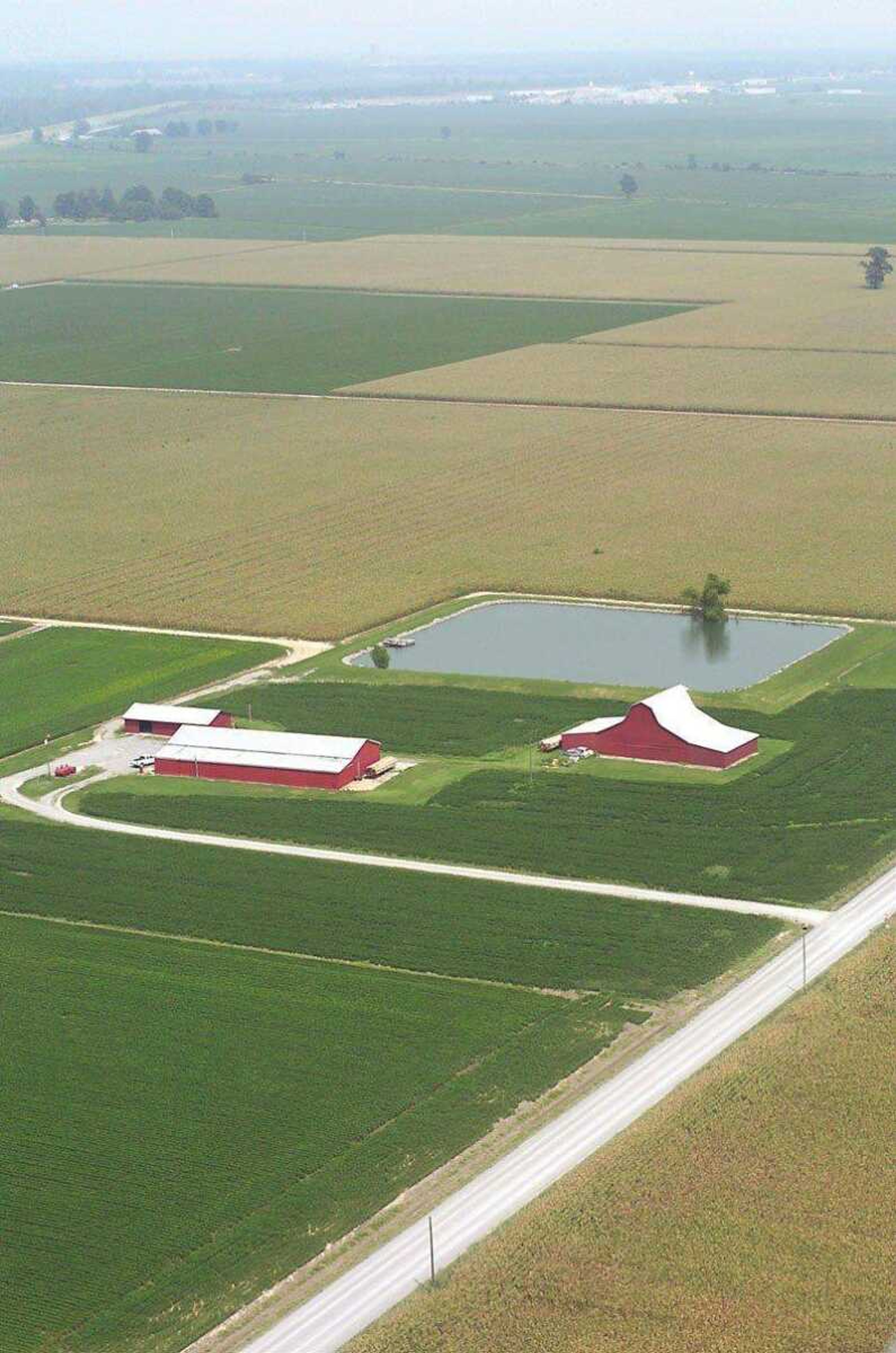Commodity prices driving up value of farm land
A combination of low interest rates and high commodity prices are pushing farmland prices to new records in Southeast Missouri. "Commodity prices have been a driver," said David Reinbott, agriculture business program director for the University of Missouri Extension in Scott County. "In 2000, corn was going for $2 a bushel and beans for $5 a bushel. And today corn is $6 to $7 and beans are $14 to $15."...
A combination of low interest rates and high commodity prices are pushing farmland prices to new records in Southeast Missouri.
"Commodity prices have been a driver," said David Reinbott, agriculture business program director for the University of Missouri Extension in Scott County. "In 2000, corn was going for $2 a bushel and beans for $5 a bushel. And today corn is $6 to $7 and beans are $14 to $15."
Low interest rates are also motivating buyers who see opportunities to add acreage.
Interest rates have been at record lows, with 30-year fixed-rate mortgages in the neighborhood of 3 percent.
Although farm land sale prices are not required to be reported to any governmental or public agency, the University of Missouri's Agricultural Economics Department surveys farmers, lenders, appraisers and real estate agents annually to determine the state's agricultural land values.
According to the most recent survey completed in 2011, cropland in the Bootheel counties of Mississippi, New Madrid, Dunklin, Stoddard, Pemiscot and Butler had the highest value in the state at $4,596 per acre. That's more than $1,000 higher than the statewide average of $3,235.
Cropland prices have more than doubled in the past 10 years, according to MU's research.
In 2001, Bootheel cropland was still the most valuable in the state, but estimated at just $2,181 per acre.
These counties also saw a 15 percent increase in cropland values from 2010 to 2011.
According to MU's most recent survey, cropland in Cape Girardeau, Scott, Perry, Ste. Genevieve and St. Francois counties was valued at $3,727 per acre. Land in these counties has also increased in price during the past 10 years, when it was valued at $1,862. From 2010 to 2011, these land prices increased only .2 percent.
While prices for commodities and farmland remain high, Reinbott said Southeast Missouri farmers have serious concerns about how these soaring prices will affect demand for commodities in the long run.
"The thing that's got everybody worried is these high prices will cause a significant reduction in demand that will cause significantly lower prices later on," he said.
But as long as interest rates stay low, Reinbott said he expects farmland values to stay where they are.
"Right now inflation is still tame. Until we get into some kind of inflationary period where we've got to raise interest rates to fight inflation, I don't really see land values falling off too much just yet," Reinbott said.
While this summer's drought had devastated unirrigated crops, Reinbott said the drought isn't expected to cause any long-term damage to the land that would decrease its value.
"Production is going to be low this year, but if we have adequate rain next year, it will be just fine," he said.
Connect with the Southeast Missourian Newsroom:
For corrections to this story or other insights for the editor, click here. To submit a letter to the editor, click here. To learn about the Southeast Missourian’s AI Policy, click here.







